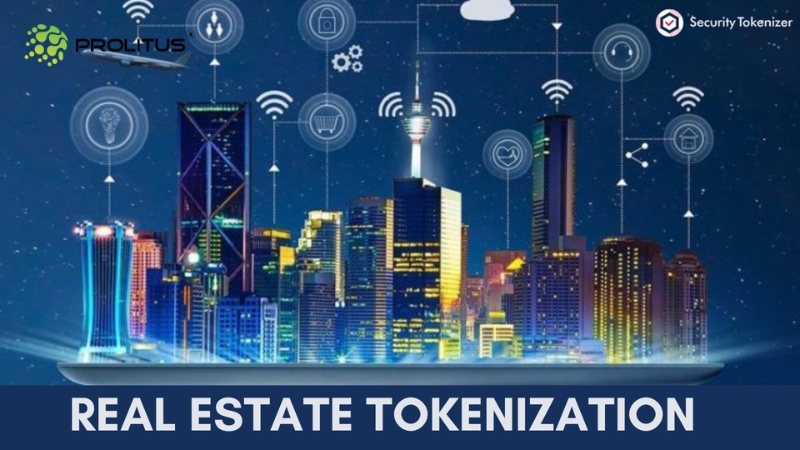In recent years, the real estate industry has been experiencing a groundbreaking transformation through the adoption of blockchain technology and the concept of tokenization. This innovative approach has the potential to revolutionize the way real estate assets are bought, sold, and managed, offering numerous benefits to investors, property owners, and the industry as a whole. In this article, we will delve into the world of real estate tokenization development, exploring its development, advantages, challenges, and its potential impact on the future of property investment.
Understanding Real Estate Tokenization
Real estate tokenization involves the process of converting ownership rights of a property into digital tokens on a blockchain. These tokens represent fractional ownership in the property, enabling investors to purchase and trade small fractions of properties, rather than purchasing the entire property. This democratization of real estate investment opens up new opportunities for both seasoned investors and newcomers to the market.
The Development of Real Estate Tokenization
The concept of tokenization in real estate gained significant traction due to the inherent advantages it offers. Traditional real estate transactions are often cumbersome, time-consuming, and involve numerous intermediaries. Tokenization streamlines the process by reducing the need for intermediaries, thus decreasing costs and increasing the speed of transactions.
Blockchain technology, the foundation of tokenization, provides a secure and transparent platform for recording ownership and transaction details. Smart contracts, self-executing contracts with the terms of the agreement directly written into code, ensure that transactions occur automatically and transparently, eliminating the need for third-party oversight.
Advantages of Real Estate Tokenization
-
Liquidity Enhancement: Real estate assets are traditionally illiquid, meaning that selling or buying them can be a lengthy process. Tokenization introduces liquidity by allowing investors to buy and sell fractions of properties on secondary markets, enhancing market efficiency.
-
Access to Global Investors: Tokenization breaks down geographical barriers, enabling investors from around the world to invest in properties that were previously out of reach. This diversifies the investor pool and potentially increases demand for properties.
-
Fractional Ownership: Fractional ownership allows investors to diversify their portfolios by investing in multiple properties, reducing risk and increasing the potential for returns.
-
Transparency and Security: Blockchain's immutable nature ensures that ownership records are accurate and tamper-proof, fostering trust among investors. Additionally, transactions conducted on blockchain are secure and transparent.
-
Lower Barrier to Entry: Real estate tokenization lowers the financial barrier to entry for investors, as they can invest smaller amounts in high-value properties, democratizing the investment landscape.
Challenges and Considerations
While real estate tokenization offers promising advantages, it's essential to acknowledge the challenges associated with its implementation.
-
Regulatory Hurdles: The regulatory environment for tokenized real estate is still evolving in many jurisdictions. Ensuring compliance with securities regulations and other legal requirements can be complex.
-
Market Adoption: While the concept is gaining traction, widespread adoption of real estate tokenization may take time as investors and property owners become familiar with this new investment model.
-
Technology Risks: Blockchain technology, while secure, is not immune to vulnerabilities. Proper cybersecurity measures must be in place to safeguard digital assets and investor information.
-
Valuation and Pricing: Determining the value of tokenized properties can be challenging due to the absence of a well-established market and comparable properties.
-
Education and Awareness: Educating investors, property owners, and industry professionals about the benefits and processes of real estate tokenization is crucial for its successful adoption.
The Future Landscape
The potential impact of real estate tokenization is far-reaching. As the technology matures and regulatory frameworks are refined, tokenization could become a standard practice in the real estate industry. Properties around the world could be tokenized, giving rise to a more interconnected and accessible global real estate market.
In addition, tokenization could facilitate innovative ownership models, such as crowdfunded real estate projects, where multiple investors collectively own and benefit from rental income and property appreciation. This could democratize property ownership further and offer opportunities for community-driven development.
Conclusion
Real estate tokenization represents a paradigm shift in the way properties are bought, sold, and invested in. Its potential to enhance liquidity, broaden investor access, and increase transparency presents a compelling case for its continued development and adoption. While challenges persist, the evolution of regulatory frameworks and increased education efforts could pave the way for a future where real estate tokenization becomes an integral part of the global property market. As the journey of real estate tokenization continues, the industry stands on the cusp of a transformative era that could redefine the landscape of property investment.


No comments yet